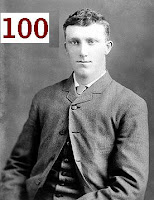
Season III of Dragons' Den begins tonight at 8 pm on CBC TV (check local listings). There will be 11 episodes this year.
Watch for lots more deals this season, and for the fur to really fly as rookie panelist Brett Wilson, a socially conscious oilman from Saskatchewan, challenges Kevin ("All I care about is mon-ey") O'Leary for the position of Top Dragon.
To get you into the spirit, there's lots of good stuff at the Dragons' Den website, including episode previews, consulting dragon Sean Wise's "Inside the Den" blog (with lots of teasers and pitcher updates), and a chance to vote for your favorite pitchers. Starting today, apparently, the site will even allow you to buy products that are pitched on the Den. Check it all out at www.cbc.ca/dragonsden/
The latest issue of PROFIT Magazine has a special preview of the new season. The story package includes:
* Profiles of all five Dragons
* A fun story by Sean Wise describing the types of "pitchers" the show encounters. His taxonomy includes blowfish ("We're the next Google!"), cockroaches (they get crushed by big competitors), ostriches (three years in business and no sales yet?), and giraffes (their heads are in the clouds). Click here for more.
* My article looking back at three entrepreneurs who appeared on the show, and what happened next. Whether they won deals or not, things started to happen for them pretty fast. Was it dragon sorcery - or the magic that begins whenever you start taking action and thinking positively? Click here for the full story.
* A useful primer on other sources of startup capital, from credit cards to the BDC and angel investors. For those who don't need Dragon magic.
Hit the "Comments" button to let us know what you think of the show.
Watch for lots more deals this season, and for the fur to really fly as rookie panelist Brett Wilson, a socially conscious oilman from Saskatchewan, challenges Kevin ("All I care about is mon-ey") O'Leary for the position of Top Dragon.
To get you into the spirit, there's lots of good stuff at the Dragons' Den website, including episode previews, consulting dragon Sean Wise's "Inside the Den" blog (with lots of teasers and pitcher updates), and a chance to vote for your favorite pitchers. Starting today, apparently, the site will even allow you to buy products that are pitched on the Den. Check it all out at www.cbc.ca/dragonsden/
The latest issue of PROFIT Magazine has a special preview of the new season. The story package includes:
* Profiles of all five Dragons
* A fun story by Sean Wise describing the types of "pitchers" the show encounters. His taxonomy includes blowfish ("We're the next Google!"), cockroaches (they get crushed by big competitors), ostriches (three years in business and no sales yet?), and giraffes (their heads are in the clouds). Click here for more.
* My article looking back at three entrepreneurs who appeared on the show, and what happened next. Whether they won deals or not, things started to happen for them pretty fast. Was it dragon sorcery - or the magic that begins whenever you start taking action and thinking positively? Click here for the full story.
* A useful primer on other sources of startup capital, from credit cards to the BDC and angel investors. For those who don't need Dragon magic.
Hit the "Comments" button to let us know what you think of the show.









